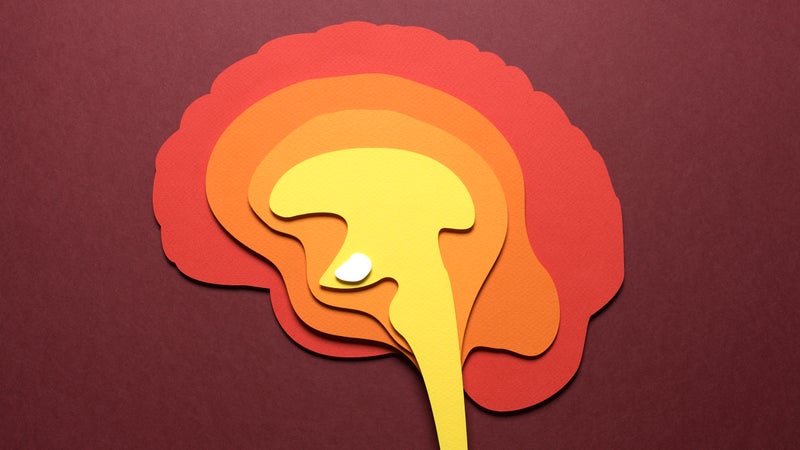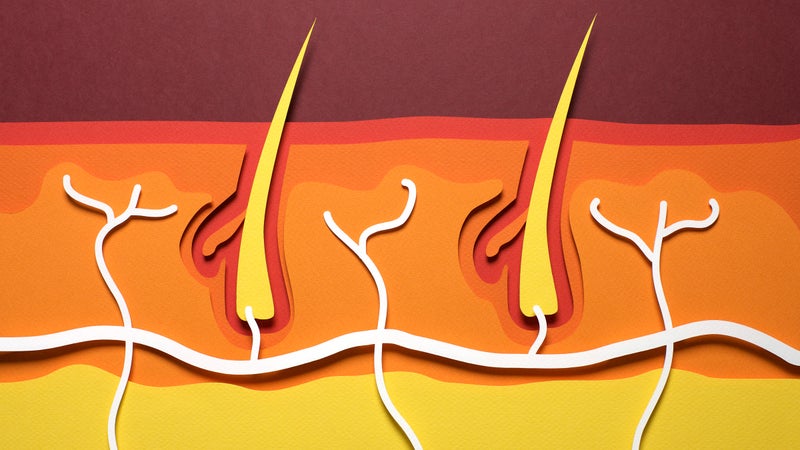Your Body in Extreme Heat
Our organ-by-organ breakdown of what happens inside your body when you push it in the heat
New perk: Easily find new routes and hidden gems, upcoming running events, and more near you. Your weekly Local Running Newsletter has everything you need to lace up! .
For endurance and adventure athletes, heat often feels like a universal nemesis. While strategically training in the heat can yield serious physiological benefits, it can also be very dangerous. When the mercury rises, your entire body is forced to work much harder than normal, which can affect performance and health; this summer's series of heat waves has led to �������DzԲ������ٳ����ٱ��.��
With , what was once considered extreme heat is becoming the new normal. Here, we explain what’s happening inside your body when you push it in the heat and, when possible, what you can do to mitigate the damage.
Brain

The hypothalamus, an almond-sized portion of the brain located just above the brainstem, is hyper-sensitive to changes in core temperature, says Julien Periard, a physiologist at who studies the mechanisms limiting prolonged exercise performance in heat. According to Periard, if your core reaches 99.5 degrees Fahrenheit (nearly a full degree above your baseline core temperature of 98.6), “the hypothalamus realizes it’s time to lose heat.” As a result, the brain reacts by opening up blood vessels near the skin and routing blood to the periphery, where it can cool.
If you continue to exercise in an environment that feels warmer than 99.5—from the air itself, but also humidity, wind, and sunlight—your body struggles to shed heat and the temperature of the blood entering your brain continues to rise. When this happens, according to Periard, neuromuscular fatigue increases: “You can’t contract your muscles with as much force as usual.” In other words, you slow down. “It’s the brain’s natural way of telling the body to stop generating so much heat,” says Periard.
Keep pushing, especially in environments that feel hotter than 104 degrees Fahrenheit, and Periard says that you put yourself at risk for more serious illness and injury. “The brain overheats and the central nervous system starts to go haywire: you might become confused, agitated, and dizzy,” he says. “These are all telltale signs of heat stroke, and signals that you should seek medical attention immediately.”
Skin

The brain routes blood to the skin for one major reason: so it can cool. When warm blood reaches your skin, your pores expand and you begin to sweat. If the beads of sweat evaporate off your skin, success: whatever is directly underneath—your blood—will cool.
But, if the air is warmer than your core temperature, sweat will not evaporate and instead drip off your skin or absorb into your shirt. In this case, your sweat is wasted and actually worsens the situation by failing to cool your body and contributing to dehydration. Dumping cold water onto your skin can help with acute cooling, but the effect is short lasting.
In either case, when you sweat, you are losing electrolytes that are critical to the functioning of your heart and nervous system. The best way to replenish them is to consistently consume an electrolyte-rich sports drink (but be careful not to overhydrate). A good rule of thumb: drink to thirst.
Heart

More blood near your skin means less blood available to your heart, explains Periard. In order to maintain cardiac output, your heart-rate increases. This explains why your heart-rate is almost always higher in hot conditions—the heart literally has to beat more times to supply the muscles and organs with the same amount of blood they are accustomed to receiving.
Decreased blood availability isn’t the only reason your heart-rate rises in the heat. According to Periard, blood that is over 98.6 degrees Fahrenheit actually stimulates the heart to beat faster. The combined effect, he says, is that “the heart has to work significantly harder on a hot day versus a cool one. This usually means decreased performance that feels quite unpleasant.”
Gut
Whenever you exert yourself physically, blood flow to non-essential organs, like your gut, is reduced, says , a professor of physiology at the University of Oregon. “This is only exacerbated in hot conditions,” he says, “when blood is being sent to your skin in order to cool.” (You can experience this phenomenon by feeling your belly after a hard effort—chances are it will be cool to the touch.)
The result is that your gut, which is normally rich with blood, is put under significant duress and its function declines. “It becomes harder to digest and absorb nutrients and the chances of nausea and general GI-distress rise dramatically.”
Muscles
The fact that your gut doesn’t function well in the heat is especially problematic because your muscles demand more fuel in hot conditions. With less blood available (remember, blood is trying to cool near your skin), your muscles rely more on anaerobic metabolism, or energy production that doesn’t require oxygen.
Anaerobic metabolism uses more sugar, increasing the likelihood that your body runs out of fuel. Muscles operating near or on empty, Minson says, are not only less efficient (i.e., you slow down) but also suffer greater damage (i.e., you’re more sore the next day). Your best bet, he says, is to try to take in calories as you go, even if this necessitates slowing down. This also means that you should expect to recover more slowly after a hard effort on a hot day.
Managing the Heat
For a few additional tips on managing and minimizing the damage associated with extreme heat, we asked Lisa Leon, a scientist at the Department of Defense who studies heat stroke.
- If possible, exercise earlier in the day, when temperatures are cooler and sunlight not as powerful.
- Use common sense: temper your exertion as the mercury rises.
- If you know you’ll be forced to work hard in the heat, follow a heat-acclimatization protocol ����ڴǰ���Ի�.��
- Implement work-rest cycles and increase the rest intervals. (For example, if you normally do 2×20 minute intervals with 5 minutes rest, consider doing 4×10 minute intervals with 8 minutes rest.)
- Use sun-tan lotion. Although there is no evidence that it helps with cooling, it does prevent sunburn, which triggers an acute inflammatory response.
- Do not take NSAIDs, like Ibuprofen or Aspirin. The mechanisms via which they control a fever are not effective for environmental heat and the toxicity of these drugs increases when your core temperature is elevated, due to decreased blood availability in the liver.
- If someone you are with is confused, dizzy, or otherwise disoriented, seek medical attention immediately. While waiting for medical personnel to arrive, do anything possible to cool them down—move them to the shade, strip their clothes, and douse them with cold water. Heat stroke is a serious emergency and time is of the utmost importance when treating it. If an individual’s core temperature stays above 104 degrees Fahrenheit for more than 30 minutes, the result can be lethal.


